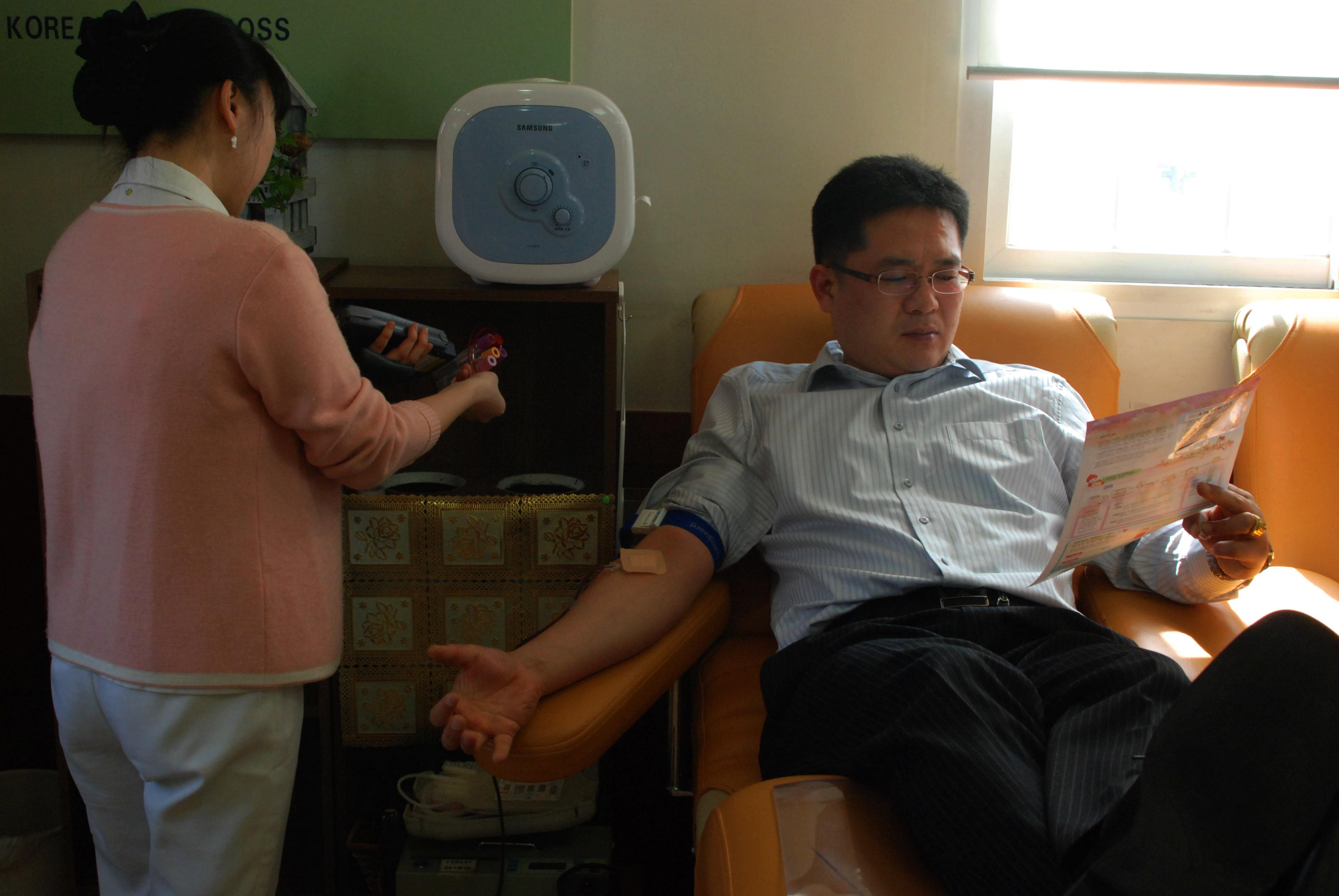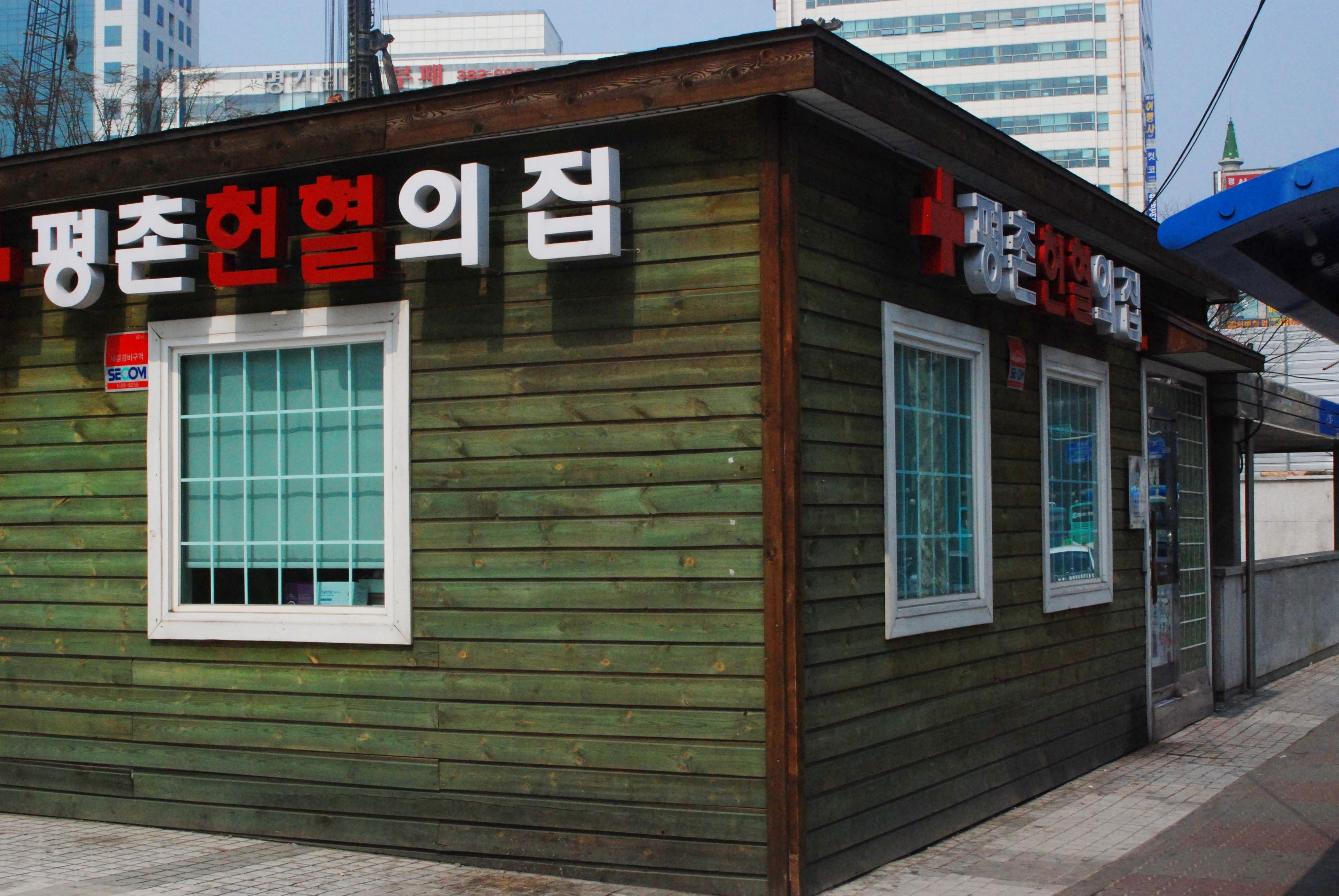It is the 70th anniversary of Hanyang University (HYU). HYU is holding a variety of events such as the design award to celebrate the anniversary. The main event is the blood donation drive. On March 9, HYU opened the Blood Donation House on the Seoul campus. This event symbolizes the founding spirit of HYU, “Love in truth and in deed.” So the purpose of this event is “love in deed and in truth.”
However, after the first day of these events, some students came to have some doubts. The opening day line for the Red Cross was not good. “Blood donations should not be compared to gold donations.” said one Hanyangian. Other students said it seemed that the school was forcing students to donate blood.
Fear of Donating Blood
In November of 2008 the Red Cross was prosecuted by the prosecutor for appropriating the addition budget of 2.1 billion won for donor’s health inspections. They also increased the price of one unit of blood from 40,000 to 70,000 won, but after raising blood prices and creating an additional budget, they still did not provide heath inspections for donors’ blood.
Although we donate our blood to the House of Blood as a donation, the Red Cross sells this same blood for about 3,500 won. A staff member from the House of Blood Donation, said. “Donors donate their blood but we still have other expenses such as inspection fees, souvenirs/awards, management expenses and personnel expenses. The NAT (Nucleic Acid Amplification Test) fee is especially expensive.” Many people think the Red Cross is a public enterprise. However, it is actually a private for profit enterprise. They seek profits for selling blood to hospitals and pharmaceutical companies. It is not transparent how Red Cross spends its funds. Although the Red Cross is a private enterprise, their character would appear to be a public enterprise which has allowed them to avoid people’s doubt and investigations. There is quite a cozy relationship that is steadily present between politics and the Red Cross. It had presented give bribe to Ministry of Health and Welfare or pharmaceutical company.

Burden of Fees
Businessman, Lee Deok-jun’s girlfriend had a surgical operation on her appendix. After the operation, many acquaintances gave blood him their donor’s registration cards. He showed the cards to the hospital but only one unit per card could deduct. If you have an operation and submit registration cards, the hospital will only deduct one unit of pure blood for each card submitted. Other fees, such as inspection fee, management expenses, cost of transport and personnel expenses do not deducted. For example, use five units of blood at operation and have seven registration cards, you cannot use all of cards, just can use five cards.
Another problem is the Red Cross membership fee. It is not a duty like other taxes because the Red Cross is not a public enterprise. The payment is compulsory. “Many people, including myself, have great dissatisfaction with the Red Cross membership fee.” Kim Min-young who visited the Blood Donation House said.
Blood Selling
According to the law regarding blood donations, selling and buying blood is restricted. However, some of people do sell and buy blood. Red Cross said that the blood selling is still prevalent. In China, on March 9, because of blood selling and buying, almost 30,000 people were infected by AIDS (Acquired Immune Deficiency Syndrome).
Some have said that at the present time, donating blood is almost the same as selling blood. A new blood donation organization, “The Hanmaeum Blood Center.” was founded (add the date) and is currently in front of the Red Cross’ House of Blood Facilty. It is called the Blood Donation Café. Blood donation houses and cafés are competing to attract donors. They attract donors using high quality souvenirs and pleasant surroundings. This competition raises the blood expense and also creates budget waste. “People go to the attractive places to donate. It is wrong to have two places for blood donations competing with each other. Donating blood should not be commercialized like other things.” Said Kim Hyeong- il, a sophomore at the Peakche Institute of the Arts.
According to Lee Jung-jeon’s book, “Market Really Made Us Happy?” commercialization of blood creates low quality of blood. When people volunteer to donate their blood, it is based on their favorable senses. When blood can be bought and sold, then people are just giving blood to make money.

Red Cross has taken some criticism from the National Tax Sevice’s for rejecting an investigation. Or after being investigated? After the tax investigation, The Red Cross’s dirty financial report was brought into the light. The Red Cross must now have a special inspection of their accounts and other financial works. Other countries’ Red Cross’ have regular quality inspections from outside organizations but Korea’s Red Cross has refused any regular quality inspections for several decades.
“The Red Cross and The Hanmaeum blood center should compromise and collaborate. They have already shared donor’s information, but they are still in competition with each other. To induce many donors, they should separate their shops and cover many places. It will create many donors and make help to more efficiently fund management.” said a staff member of The Emergency Blood Donation Corps.
“Souvenir supply will not change, because it has already become a standart practice.” said Kang Ju-hee, a sophomore in business administration at HYU. Except for Japan, other countries do not give souvenirs to donors. If blood donation is becomes only volunteer work, expenses for donating blood will go down.
Korea’s blood donation rate is just five percent, but developed countries’ rate is over seven percent. To raise blood the donation rate, The Red Cross and Hanmaeum blood Center should not attract people using gifts or benefits. They must create and support the idea that donating blood equals playing a good and upright role that support’s HYU’s founding ideology of giving.

